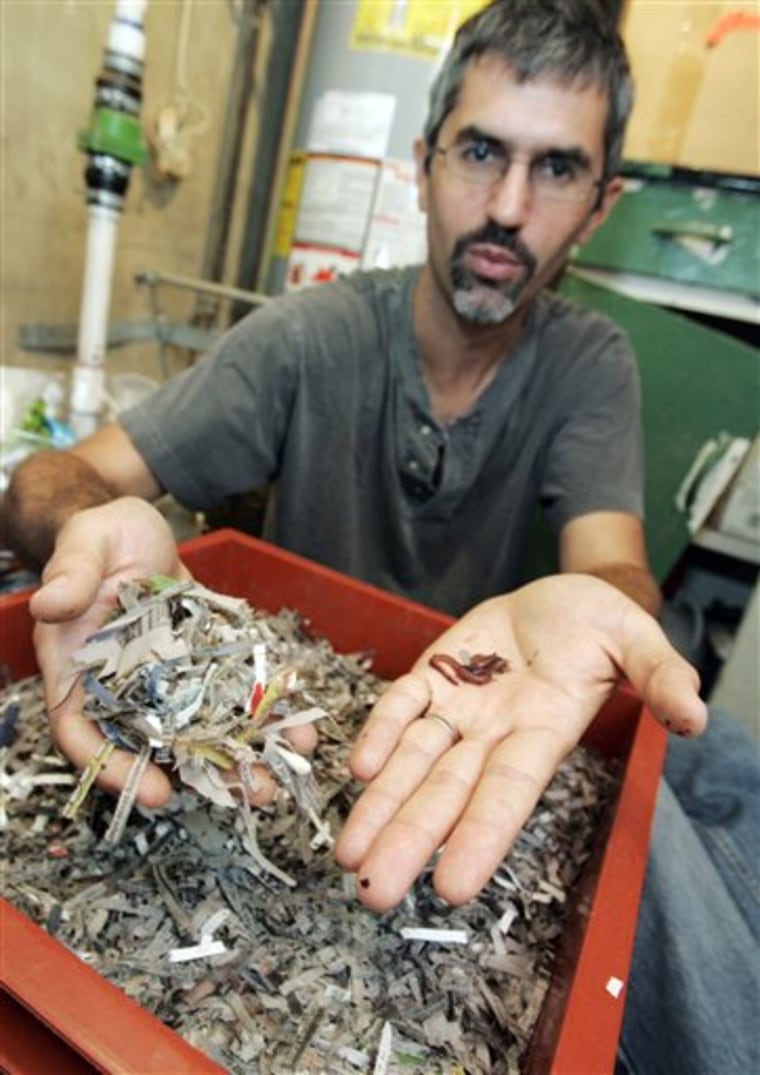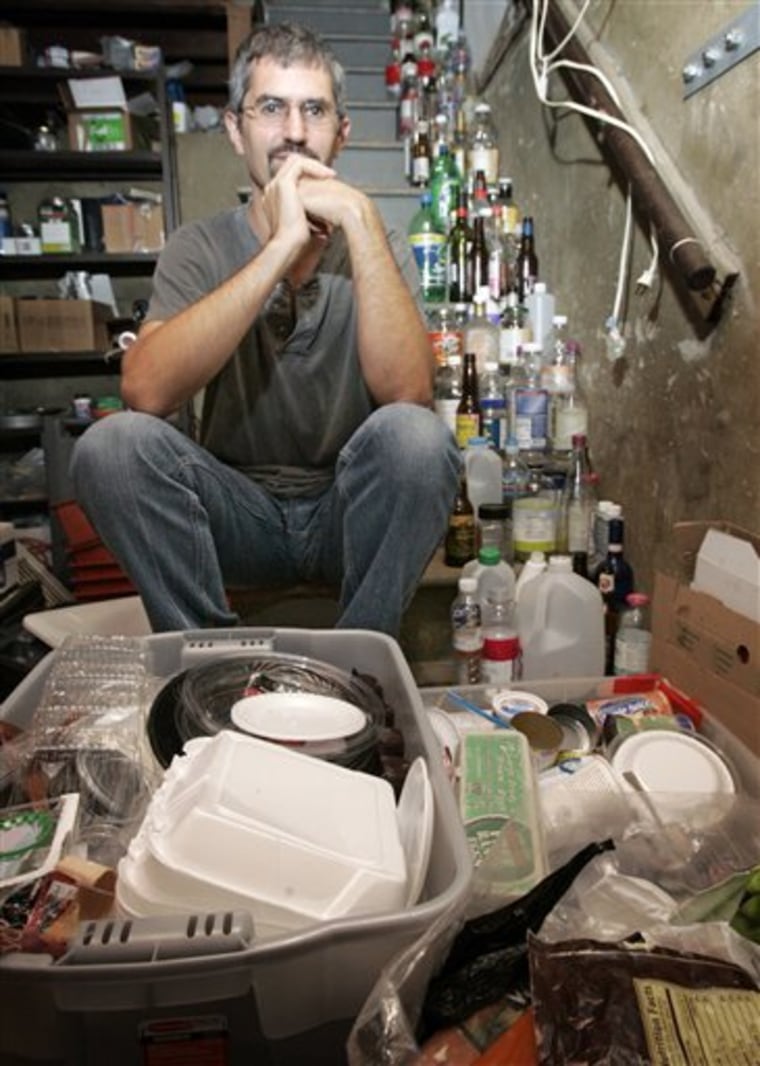Without ever lifting a shovel, an archaeologist could dig through Dave Chameides' house and get a pretty good picture of how he has lived for the past eight months.
Empty soda bottles lead down the staircase. Pizza boxes line the walls. In the cellar are neatly stacked Styrofoam trays, used tea bags and plastic wrap.
Almost every bit of Chameides' garbage has been carefully preserved in a testament to the volume of trash produced by daily living.
What's even more surprising is what he doesn't have to show for it. While the average American generates more than 900 pounds of garbage in eight months, Chameides has produced only 30 pounds.
"Whenever I tell people what I'm doing, there's always that look — the furrowed brow and then the 'I'm sorry? You're doing what?'" said the freelance cameraman for "Nip/Tuck," the FX plastic surgery show that celebrates excess. "I tell people I know this is nuts."
Chameides prefers to think of the yearlong experiment as his contribution to the study of consumerism.
The path to becoming a pack rat with a purpose began years ago when he installed compact fluorescent bulbs, bought a Prius hybrid car and began using solar panels.
Wife was OK, to a point
But as Chameides learned about the staggering amount of trash rapidly filling landfills, he began to ponder keeping his garbage for a year and then broached the subject with his wife.
"He said, 'I'd like to do this experiment. I'd like to keep my trash in the basement for a year,'" recalled his wife Aliza Chameides, who did not object as long as the project didn't affect her.
He set up ground rules: He would only collect his own trash, not that of his wife or two young daughters. Potential health hazards — toilet paper or fish wrappers — would be logged on his blog and then tossed. Food scraps would be composted, and everything else was to be saved, even recyclables because they take energy to haul away and remanufacture.

Edward Repa, director of environmental programs for the National Solid Wastes Management Society, keeps tabs on waste-related news around the country and thought Chameides' experiment was crazy.
"Most people are like if it's under your sink for a week, you don't want it there," Repa said. "I've never heard of anyone wanting to save that stuff."
Chameides isn't the first to attempt such a long-term project. He cited the example of a writer called "No Impact Man" who is trying to live with his family for a year in New York without making any net impact on the environment.
As the weeks passed, Chameides found ways to reduce his waste. He takes his own cutlery and plates to work. He considers packaging before buying a product and takes a glass container to the fish market to avoid the plastic wrapping. He paid a company to reduce his junk mail and managed to stop phone books from landing on his doorstep.
He's employed an army of worms to chew through the compost in his basement, and the little crawlers have their own blender to puree their meals after his wife discovered him mashing worm chow in the family blender.
"I think Dave thinks trash isn't trash anymore," his wife said.
Explaining his experiment has been awkward at times. When one of his daughters vomited at a friend's house, he was handed a fistful of paper towels. Chameides momentarily considered asking for a cloth towel before deciding to save his daughter the embarrassment.
On a romantic getaway to Mexico, the couple were stopped by airport screeners who appeared baffled by the extra duffel bag of Mexican trash that went through the X-ray machine.
Screeners: Que es esto? (What is this?)
Chameides: Es basura. (It's trash.)
Screeners: Basura? (Trash?)
Chameides: Si, mi basura. (Yes, my trash.)
Hair clippings go into bag
Most people are supportive once he explains. Chameides' barber agreed to put his hair clippings in a bag, and doctors packed up materials they used to check Chameides' infected ear after a trip to the emergency room.
"If I had totally thought it through, I might not have done it," he admits.
At work, his crusade has inspired changes: Assignments are e-mailed instead of printed on paper, and they come with environmental tips. Writers for the television show no longer use plastic water bottles, and others have adopted composting or installed energy-efficient light bulbs.
"He truly believes in what he's doing," said David Harp, director of photography. "I never feel like I was being preached to with Dave. It's like learn by example."
Now that the half-year mark has passed, Chameides has thought about the day when he will be able to haul his refuse to a landfill. He expects to "feel guilty and remorseful."
His wife is less ambivalent about finally throwing the trash away.
"He'd better," she said.
